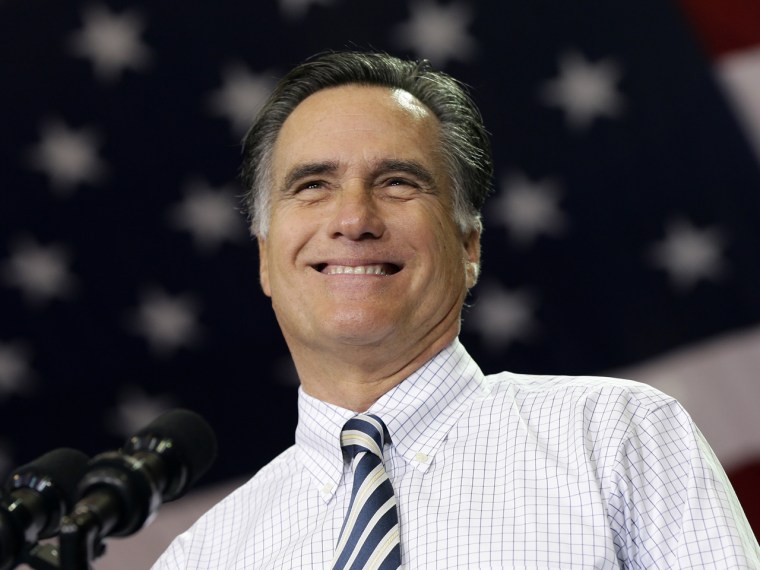Thanks to the Presidential Transition Act of 2010, Mitt Romney's transition preparations during the presidential election will cost the U.S. government an estimated $8.9 million, according to documents obtained by TIME Magazine.
Supervised by the General Services Administration, the Presidential Transition Act was enacted to ensure a smooth transition for eligible candidates, given the reality of national security risks. The GSA provides certain resources to help get transition teams off the ground, and it encourages and legitimizes what otherwise might be deemed presumptuous by the candidate.
Mitt Romney was the first to take advantage of this legislation, and the federal government paid for a number of items in anticipation of a transition that never occurred. For example, the design and construction of a transition headquarters cost $2.5 million; the furniture expenses came to $740,000; the IT services, computer equipment, and cellphones cost $5.6 million. The government also paid for a secure network connection, '.gov' email addresses for employees, and utilities up to 5p.m. every day.
The government didn't pay for everything. It was up to Romney, for example, to reimburse his employees. To be sure exactly what would and would not be covered by Uncle Sam, Romney's team wrote up a "Memorandum of Understanding" detailing specifics. The remainder was paid for using contributions to a 501(c)(4) fund.
According to TIME, Romney's team began to meet with GSA officials in June, before he had officially clinched the nomination, but after it was clear he was going to. Former Utah Governor Mike Leavitt led the pre-transition squad.
Leavitt devised a four-phased approach to the transition: the "readiness" phase, the "planning" phase, the "transition" phase, and the "handoff" phase. Needless to say, he never got the chance to implement the latter two. The whole thing was structured around building a presidency to fulfill Romney's campaign promises, including the slew of "Day One" measures like repealing Obamacare and approving the Keystone XL pipeline.
"We built a great ship," Leavitt said, "but it just didn't sail."
